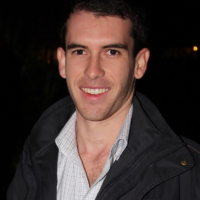Kyle Hillcoat
PhD Candidate
Bachelor of Science majoring in Marine Biology (2015), Graduate Certificate of Research Methods (2016)
James Cook University Townsville

From 2005 to 2022, the main node of the ARC Centre of Excellence for Coral Reef Studies was headquartered at James Cook University in Townsville, Queensland (Australia)








PhD Candidate
Bachelor of Science majoring in Marine Biology (2015), Graduate Certificate of Research Methods (2016)
James Cook University Townsville
Kyle grew up in Bundaberg Queensland, Australia. Coming from a family involved in the Coral Reef Fin Fish Fishery (CRFFF) and with a love of fishing himself, he completed his Bachelor of Science majoring in Marine Biology at James Cook Universities Townsville campus. After getting a taste of Fisheries Science during his undergrad, Kyle promptly focused his sights toward postgraduate studies. This began with a Graduate Certificate in Research Methods under the supervision of Professor Garry Russ where he investigated long-term benthic drivers upon predatory coral reef fishes in the Phillipines. This then led into JCU’s Master’s by Research Degree. Gratefully under the supervision of Professor Garry Russ, Professor Geoffrey Jones and in conjunction with Queensland Governments Department of Agriculture and Fisheries, Kyle’s project aims to investigate latitudinal effects on the demography of three key recreational and commercial fishes, the red emperor, saddletail snapper and crimson snapper along the Queensland Coast. His findings will provide valuable insight into the future management of Queensland’s CRFFF.

Meeting the Minister for Fisheries and Agriculture
New DNA techniques are being used to understand how coral reacted to the end of the last ice age in order to better predict how they will cope with current changes to the climate. James Cook Univer
A new study on the effects of climate change in five tropical countries has found fisheries are in more trouble than agriculture, and poor people are in the most danger. Distinguished Profess
James Cook University researchers have found brightly coloured fish are becoming increasingly rare as coral declines, with the phenomenon likely to get worse in the future. Christopher Hemingson, a
Researchers working with stakeholders in the Great Barrier Reef region have come up with ideas on how groups responsible for looking after the reef can operate more effectively when the next bleaching
Abstract: As marine species adapt to climate change, their heat tolerance will likely be under strong selection. Individual variation in heat tolerance and its heritability underpin the potential fo
Abstract: The Reef Ecology Lab in KAUST’s Red Sea Research Center explores many aspects of movement ecology of marine organisms, ranging from adult migrations to intergenerational larval dispersal
Abstract: Macroalgal meadows are a prominent, yet often maligned component of the tropical seascape. Our work at Ningaloo reef in WA demonstrate that canopy forming macroalgae provide habitat for ad
Abstract: Sharks are generally perceived as strong and fearsome animals. With fossils dating back at least 420 million years, sharks are not only majestic top predators but they also outlived dinosa
Abstract: Connectivity plays a vital role in many ecosystems through its effects on fundamental ecological and evolutionary processes. Its consequences for populations and metapopulations have been
Abstract: Evolution of many eukaryotic organisms is affected by interactions with microbes. Microbial symbioses can ultimately reflect host’s diet, habitat range, and even body shape. However, how
Abstract: The past few years have seen unprecedented coral bleaching and mortality on the Great Barrier Reef (GBR) but the consequences of this on biodiversity are not yet known. This talk will expl